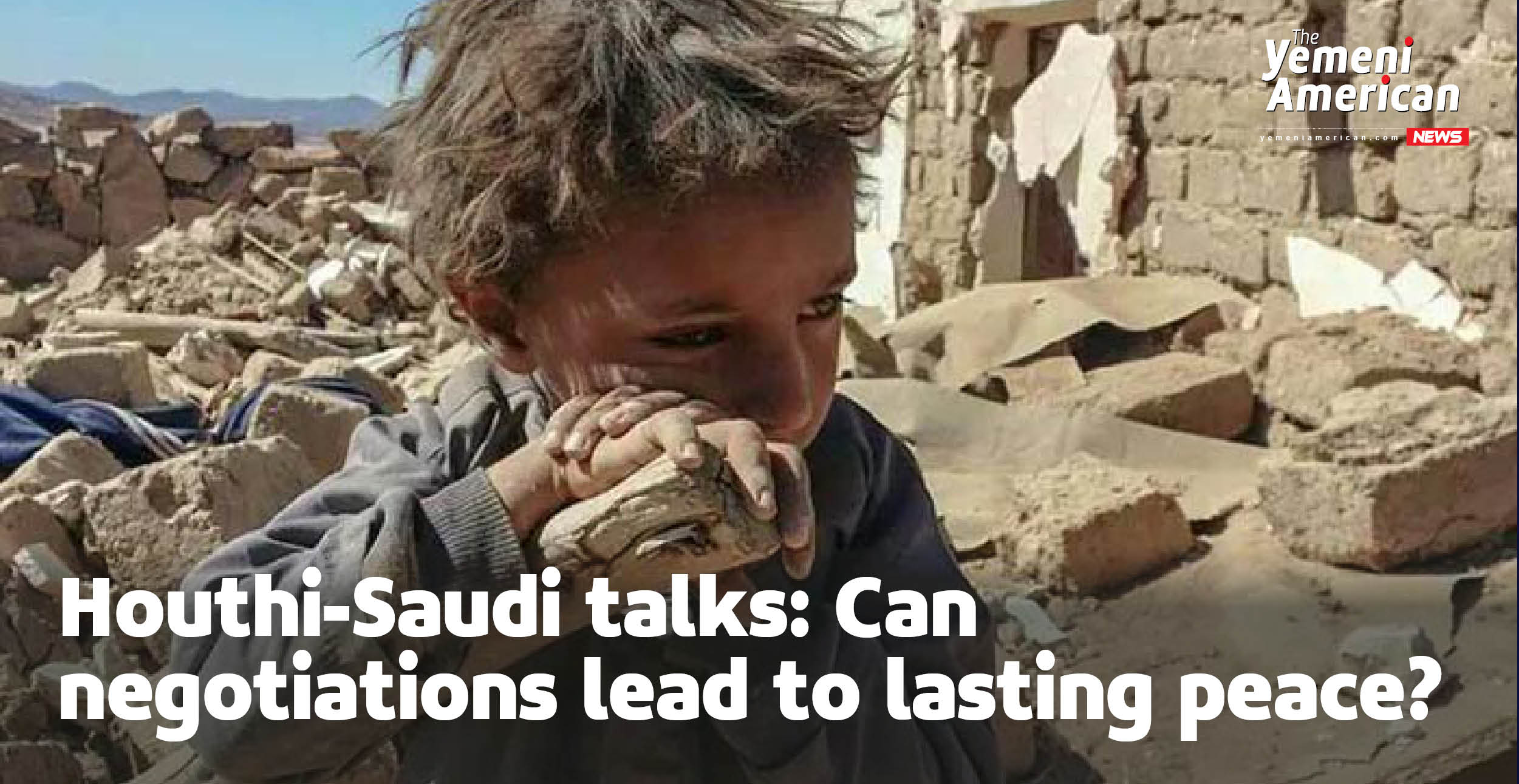Face-to-face talks between the Houthis and Saudi Arabia have resumed after a delegation from the Yemeni rebels visited the kingdom this month.
This round of negotiations, like the previous talks in Sanaa, took place without direct participation by the internationally-recognized Yemeni government, leading political experts to question whether the meetings can lead to a comprehensive resolution to the conflict.
Analysts interviewed by the Yemeni American News expressed scepticism over the ability of the Houthi-Saudi talks – which have received explicit support from the United States – to produce lasting peace.
Still, there is hope that the negotiations can ease Yemenis’ suffering and treat some of the issues plaguing the country.
Direct contact between the Houthis and Riyadh comes as the kingdom strengthens its detente with Iran.
Mohammed Abd al-Wahhab al-Shibani, the editor of Khuyut media outlet, said the negotiations could lead to some power-sharing agreements between the local Yemeni sides, but that would merely kick the can down the road until the next crisis.
“That’s because it is not addressing the roots of the problem and asking why the war was started and who caused it,” al-Shibani told the Yemeni American News.
“Saudi Arabia is pursuing these talks to get out of the crisis it got itself into with its reckless policies throughout the years of the war.”
He added that the kingdom’s approach is based on producing weak allies and followers rather than strong partners.
‘Sterile visions’
Al-Shibani hit out at what he called “the same sterile visions” that drove the kingdom’s policies in its impoverished neighbor, which turned Yemen “into a dumping ground for Saudi Arabia’s political waste and religious extremism for half a century”.
He noted that Saudi Arabia sponsored the 1970 agreement that ended the brutal eight-year war between republicans and royalists.
“That led to splitting the government between the various warring sides, and one of the results of this power-sharing scheme was the sparking political feuds and coups until we got to the big explosion that will continue to haunt Yemenis at every turn if its root causes are not treated,” al-Shibani said.
Asked about the role of the internationally recognized Yemeni government, al-Shibani added: “It remains far from administering public affairs – politically and militarily – because the government never had the ability to make its own independent decision.
“Its entire structure consists of contradictory sides that were brought together by the Saudi-led coalition. All of its major decisions, including the war, were taken for it by its various sides’ patrons.”
US support
But al-Shibani said there appears to be an international will – driven primarily by the United States – to end the war and produce a settlement.
He said that ahead of the 2024 US elections, President Joe Biden and his Democratic Party want to tout Yemen as foreign policy success by producing relative calm and ensuring that the energy market in the Middle East is not rattled by the conflict amid the ongoing war in Ukraine.
Indeed, the Biden administration welcomed the Saudi-Houthi talks earlier this month.
“President Biden, from his first weeks in office, has made de-escalating and ending the war in Yemen one of his top foreign policy priorities,” US National Security Adviser Jake Sullivan said in a statement, adding that Washington has been “proud” to support the peace process in Yemen in coordination with the UN.
“We commend the leadership of Saudi Arabia for this current initiative and thank the leadership of Oman for its important role. We call on all parties to this terrible conflict to further solidify and expand on the benefits of the truce that has brought a measure of peace to the Yemeni people, and ultimately bring this war to an end.”
Civil peace
ِِAbdulkareem Ghanem, a political scientist, said – at best – the negotiations will revive talks over non-political issues, including paying public sector employees, lifting the blockade on cities, allowing import through ports and more prisoner swaps.
“The talks lack some key elements, especially the absence of the internationally recogized Yemeni government, whose position today is entirely following its Saudi allies. The government does not have a margin to make its own decisions away from Riyadh’s agenda,” he said.
“The Kingdom of Saudi Arabia views the government as an employee that cannot reject what Riyadh orders regardless of considerations for Yemen’s interests and civil peace.”
He added that the negotiations are proceeding according to what benefits Saudi national security as well as the demands of the Houthis.
He noted that the Houthis sought direct negotiations with Riyadh to simplify the war as transnational, when at its core, it is a civil conflict that started with the rebels’ coup against the legitimate government.
“And so, it is unlikely that the talks will lead to permanent peace inside Yemen,” Ghanem said.













